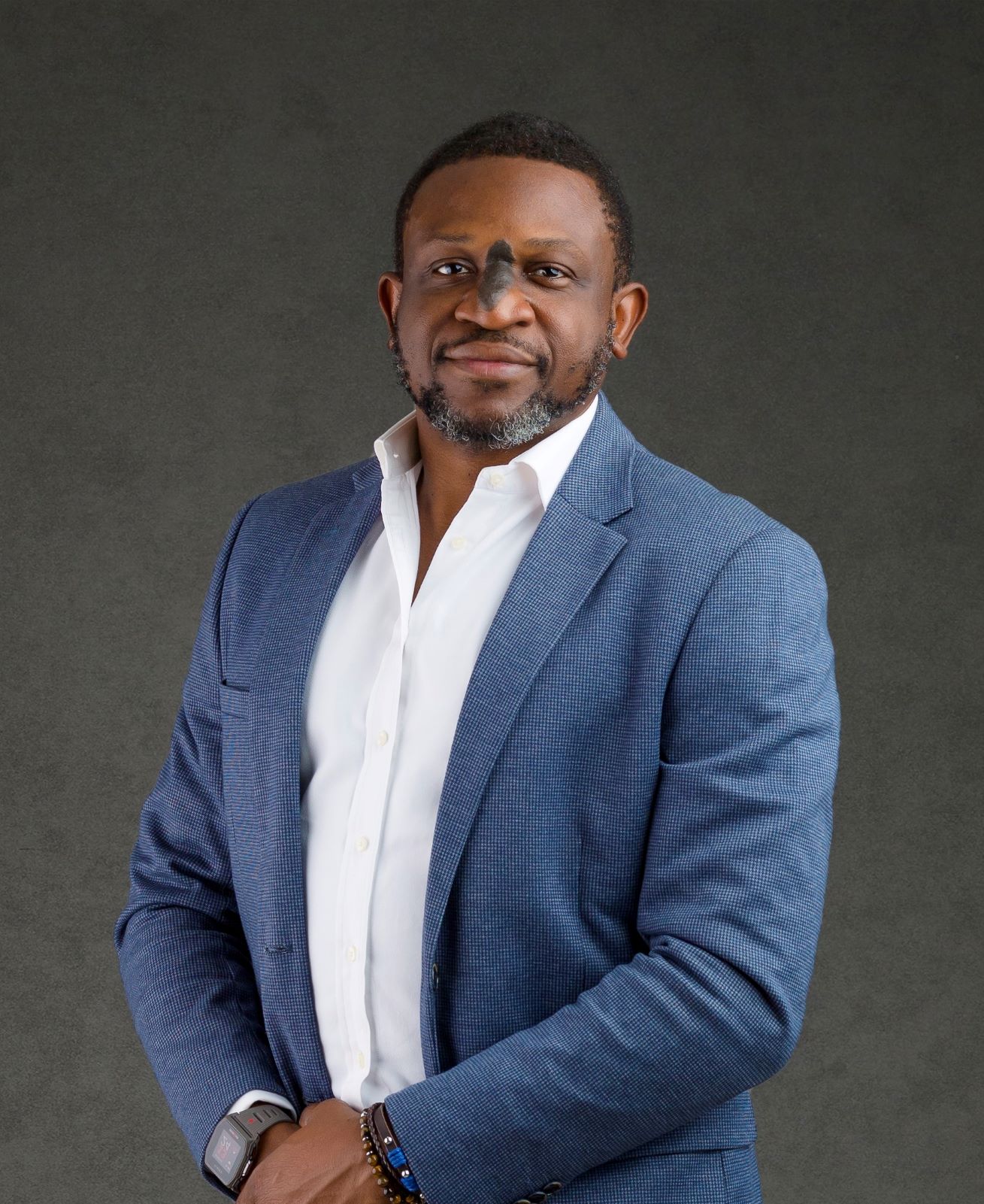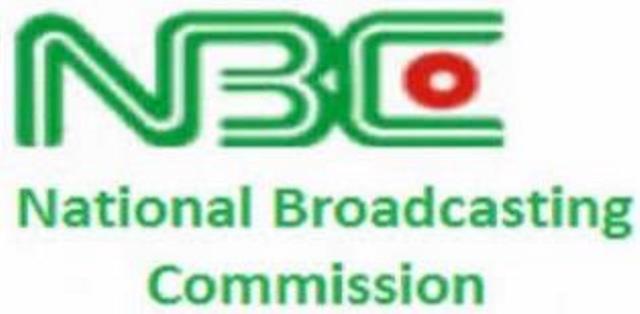Broadcasting
Nigerian Businesses can Harness Conversational Messaging to Better Engage Customers in the Digital Era

By Olatayo Ladipo-Ajai, Regional Manager at Infobip Nigeria
Businesses in Nigeria are currently faced with numerous challenges, including fast-changing global economic conditions, a new post-pandemic reality, as well as a fast-growing young population that is increasingly technology-savvy. These prevailing market conditions have ushered in challenging times, making it increasingly difficult for organisations to maintain and attract new business. Simultaneously, companies are finding that competition is increasing, which demands better and more creative differentiation than just better pricing to maintain a competitive edge.

Olatayo Ladipo Ajai
All the while, consumer behaviour is also changing drastically, with an increase in numbers of Nigerian customers choosing to engage and transact with brands online. The country’s internet penetration rate stood at 55.4% of the total population at the start of 2023, with 122.5 million internet users recorded in January 2023. Further to this, a total of 193.9 million cellular mobile connections were active in early 2023, equivalent to 87.7% of the total population.
Consequently, this prompts Nigerian businesses to explore more universal engagement routes to connect with their customers and interact via conversational messaging. To successfully engage with customers in the digital space, businesses are increasingly making the shift towards hyper-personalisation, automation, and 24/7 availability, allowing their promotional campaigns and messaging to be directly targeted at individual customers.
Deriving more value
Brands in Nigeria are thus beginning to realise that customers do not fit into boxes but are individuals who need to be analysed to derive most value from customer engagements. At the same time, it is also becoming clear that traditional SMS messaging is inadequate where achieving this level of engagement is concerned.
While SMS has played a critical role in business communication, the new realities around customer behaviour and expectations mean that traditional SMS messaging – which provides one-way engagement – has certain limitations such as gateways, DND (Do Not Disturb) and firewalls that often prevent promotional messages from reaching the target end customer, which may result to relatively low SMS open and read rates.
Conversational messaging, in the form of Rich Communication Services (RCS), can address many of these challenges, enabling businesses and brands to communicate more effectively while reaching out, attracting and converting potential customers. RCS is an evolution of SMS, which integrates features from various chat apps into one platform.
The platform allows the exchange of group chats, PDFs, video, audio and high-resolution images, as well as read receipts and real-time viewing, providing more value than traditional SMS. One of its key benefits is that RCS sits on top of the SMS platform, which means it has the same reach and is thus also native on most smartphones.
Better metrics
RCS allows for conversational engagement with customers who can be interacted with as a group or directly on a one-on-one basis, similar to apps such as WhatsApp. A clear benefit for businesses is that RCS provides deeper metrics on whether a message has been delivered, opened and clicked, delivering better analytics for businesses to gauge how successful a promotional campaign has been.
The use cases for RCS are varied and a number of banks, retailers and hospitality businesses have started using it to send promotional and transaction messages to customers. For example, banks can send payment notifications as full colour, branded, PDF documents that can serve as payment receipts. Some restaurants already use the card carousel feature to send their menus to customers to browse through the different pages and click on their desired options, without having to use the restaurant’s website or mobile app. Other use cases include the ability to send messages with a location pin from Google Maps, movie previews or QR codes that enable mobile payments by directing users to mobile payment platforms.
Conversational message provides a customer experience that not only focuses on problem-solving, but aims to build long-term relationships with customers, leading to greater customer loyalty, improved brand image and ultimately more revenue. By being conversational, businesses can deliver the best customer experience possible with advanced technology and readily meet changing consumer demands.
Broadcasting
FG Kickstarts Construction of Emerging Technologies Institute in Kano

Federal Government of Nigeria has marked a significant milestone on Friday, 14th February 2025, by breaking ground for the construction of the Sustainable & Emerging Technologies Institute (SETI).

This institute, under the aegis of the National Agency for Science and Engineering Infrastructure (NASENI), aims to ensure the socio-economic wellbeing of future generations. The groundbreaking ceremony was held at the Bayero University Kano (BUK) New Campus.
Mr. Khalil Suleiman Halilu, Executive Vice Chaiman/Chief Executive Officer (EVC/CEO) of NASENI, during the Ground-breaking ceremony held at the Bayero University Kano (BUK) New Campus said the new institute sits on 30 hectares of the BUK land to be built, featuring state-of-the-art facilities, including innovation hubs devoted to Artificial Intelligence and other cutting-edge technologies, complemented by reliable power supply. “NASENI will fully build and equip and support the new Institute” said the EVC/CEO.
The future of socio-economic development for nations rests on human creativity, innovation and cooperation, Artificial intelligence, robotics amongst others.
Halilu said that the establishment of SETI in Nigeria is to rapidly respond to the waves of young people globally revolutionizing world economies with unprecedented emergence of socio-economic frontiers as by-products of innovations and ingenuities of these young minds.
“We in NASENI are firm believers in the potential of young Nigerians to be the prime catalysts of the type of transformation that Nigeria requires. And we will do everything within our powers to support them to fulfil this important responsibility”
“We are gathered here today to kickstart a project that will transform the lives and careers of future generations of young Nigerians. The Sustainable & Emerging Technologies Institute (SETI), located at the Bayero University Kano (BUK) by NASENI. This is very much in line with our operating principles; what we call our 3Cs: Collaboration, Creation, and Commercialization. These 3Cs are the principles that passionately drive us and guide the work that we do to ensure the industrialization of Nigeria in line with the Renewed Hope agenda of President Bola Ahmed Tinubu.”
SETI will produce innovators, technologists, entrepreneurs who will make their mark not just in Nigeria but around the world. “I’m eagerly looking forward to the day, not too long from now, when the Institute’s first set of beneficiaries will astonish the world with what they’re capable of accomplishing. These stories will put not just BUK on the global innovation map, but also Kano State and the entire Nigeria” said Halilu.
While carrying out the symbolic foundation laying ceremony of the institute as Special Guest of Honour, the Minister of Innovation, Science and Technology, Chief Uche Geoffrey Nnaji, described the project as not only laudable but NASENI’s another way of fast-tracking the placing of Nigeria on the global map of innovation and industrialization. The minister called the project an “ace project” and a pointer to secure a veritable socio-economic development for the nation.
In his goodwill message, the Vice Chancellor of BUK, Professor Sagir Adamu Abbas described the new institute as a vehicle for bringing together the three critical tripods for economic and sustainable development for nations, that is, the government, academia and industry. He described the ground-breaking event as the beginning of Nigeria’s journey in pursuit of sustainable development, massive job creation opportunities for the youths, and that the BUK was delighted to be host to such laudable initiative and momentum.
There is also, in addition to SETI, a second NASENI project for BUK is an Agri-preneurship Training Hub, that will be equipped with modern greenhouses, and facilities for Soil-less Farming, and Tissue Culture; occupying 10 hectares of land at the Old Campus. These projects collectively represent what NASENI stands for, that is, building capacity, advancing industrialization, supporting economic growth and prosperity.
NASENI appreciates the Government and people of Kano State, and the Vice Chancellor, management and students of Bayero University Kano (BUK), for all the support. Special gratitude goes to the Honourable Minister of Innovation, Science and Technology, Chief Uche Geoffrey Nnaji, the Special Guest of Honour.
NASENI thanked members of the National Assembly for their support, especially the NASENI oversight Committees in both chambers. And of course, President Bola Ahmed Tinubu, who has given NASENI the opportunity to serve Nigeria through his unwavering demonstration of commitment to the success of the Agency.
Broadcasting
Family Marks one-year Memorial of Late APC Chieftain, Ojougboh with Charity Outreach

The family of the late chieftain of the All Progressives Congress (APC), Chief Dr. Cairo Ojougboh, led by his wife, Mrs. Bose Ojougboh, marked his one-year memorial anniversary with a series of charitable initiatives aimed at honoring his legacy of philanthropy and service to society.

The memorial activities included the donation of school books and bags to pupils of Erigbe Primary School, in Agbor within the Ika South Local Government Area (LGA) of Delta State, where Dr. Ojougboh had received his early education.
The outreach also included extension of financial assistance to patients at Central Hospital, Agbor, and the provision of toiletries, cash, and food items to children at the Salve Regina Children’s Home, Agbor.
The outreach was carried out under the ‘Dr. Cairo Ojougboh Foundation’, a family-led initiative established to immortalise him and continue his lifelong commitment to education, healthcare, and social welfare.
Speaking during the event which took place recently, Mrs. Ojougboh reaffirmed the family’s dedication to sustaining the ideals of the late APC chieftain, describing him as a man who strongly believed in education and giving back to society.
“We are here to celebrate the life of my husband, Late Dr. Cairo Ojougboh, who passed on a year ago. In his honour, we decided to give back to society.
“He was a man who valued education and was always willing to help others. It is only fitting that we continue his legacy through acts of generosity,” she stated.
Honouring his passion for education
The first visit was to Erigbe Primary School, where Dr. Ojougboh had received his early education. The Foundation distributed school bags, writing materials, and food packs to the pupils. The family encouraged the pupils to take their education seriously and strive to become responsible citizens.
Supporting patients at Central Hospital, Agbor
At Central Hospital, Agbor, Mrs. Ojougboh and her entourage moved through the medical wards, offering financial support to patients to assist with their treatment costs. The hospital staff and beneficiaries responded with prayers and words of gratitude for the kind gesture.
Reaching out to orphaned children
The outreach team also visited Salve Regina Children’s Home in Agbor where they donated cash, food items, and toiletries to the children. The Matron of the home expressed her deep appreciation to the Ojougboh family, commending their commitment to sustaining the late politician’s legacy of compassion and social impact.
Dr. Cairo Ojougboh’s enduring legacy
Reflecting on her late husband’s contributions to society, Mrs. Ojougboh emphasised that his legacy of generosity and service to humanity would not be forgotten.
“Dr. Cairo was a selfless man who touched many lives. His contributions to the Nigerian political landscape, his mark in Agbor Kingdom, Delta State, and the country at large, will always be remembered. He may be gone, but his impact will continue to be felt for generations,” she said.
The Dr. Cairo Ojougboh Foundation has pledged to continue supporting education, healthcare, and social welfare initiatives in his memory, ensuring that his vision for a better society lives on.
Broadcasting
Court Discharges, Acquits, Kawu, Ex-NBC DG of N2.5Bn Fraud

Justice Folashade Ogunbanjo of the Federal High Court Abuja has discharged and acquitted Ishaq Kawu Modibbo, former director-general, National Broadcasting Commission (NBC), and Pinnacle Communications Limited.

Ishaq Kawu Modibbo, former director-general, NBC
They were being prosecuted by the Independent Corrupt Practices and other related Offences (ICPC) of charges bordering on the ₦2.5 billion released to Pinnacle Communications under the Federal Government Digital Switch Over (DSO) project.
Delivering judgement on Thursday, Justice Ogunbanjo held that the ICPC was not able to prove the allegations against the defendants.
The judge further discharged the defendants on the grounds that the statements and evidence of the witnesses, could not pin any allegation on the defendants.
She further held that some of the witnesses contradicted themselves, and none of their statements was able to link the defendants to the charge.
According to the judge, while some of the witnesses in their oral evidence, said Lai Mohammed, former Minister of Information, was misled in approving the payment of ₦2.5 billion to Pinnacle Communications Ltd, they failed to render any documentary evidence.
The trial of the former director-general of the NBC lasted for six years.
He and Pinnacle Communications were prosecuted by the ICPC, on a five count amended charge over the release of ₦2.5bn to Pinnacle Communications Ltd, under the approval of Mohammed, under the FG Digital Switch Over (DSO) project.

 E-Business3 days ago
E-Business3 days agoSchmidt, Ex Google Chief Says AI Risky in Terrorist Hands

 News3 days ago
News3 days agoFG Order MDAs to Close Commercial Banks’ Accounts, Enforce TSA Policy

 News2 days ago
News2 days agoTikTok Returns on Apple, Google US App Stores as Trump Delays Ban

 General News2 days ago
General News2 days agoResearchers Develop Innovative Treatment for Malaria

 E-Financial3 days ago
E-Financial3 days agoNigeria Worst Hit by Crypto Currency Fraud

 Telecom3 days ago
Telecom3 days agoSalesforce Collaborates with Tech Leaders to Launch AI Energy Score for Model Efficiency

 Telecom3 days ago
Telecom3 days agoGombe Commissioner of Police Visits GBB Command Centre, Strengthens Collaboration on ICT-Driven Security Solutions

 E-Financial3 days ago
E-Financial3 days agoBanking Consolidation Less Likely as Nigerian Banks Meet Capital Requirements – Fitch

























